The J&K Assembly elections have seen hectic round of campaigning by different political parties. The Lok Sabha elections in May saw an unprecedented high voter turn-out of 58.46% in J&K. The first phase of Assembly elections saw a higher voter turn-out of 61.13 %[1] despite increase in terrorist incidents in Jammu region. This attests to the faith of the people of J&K in India’s democracy.
The shape of things to come will be known only after the remaining two rounds of elections are held, and a government is formed. However, it is to be noted that the National Conference and PDP election manifestos have demanded restoration of the status of statehood for J&K. They have also demanded reviving Article 370. NC and PDP are likely to use election results as a verdict on the deletion of Article 370, even though the Supreme Court has already upheld its constitutional validity. The two major regional parties have also called for India-Pakistan dialogue.
The demand for restoring statehood for J&K could be looked at sympathetically. Prime Minister Modi and the Supreme Court have given positive indications in this regard. But does it help to link domestic processes with revival of the Indo-Pak dialogue? This naturally raises the question how Pakistan has treated Kashmiri Muslims on its side of the LOC. How much ‘Azadi’ or autonomy they enjoy? What are the powers of the elected government in POK and Gilgit-Baltistan? What is the nature of elections in the two territories illegally occupied by Pakistan?
POK was run on the basis of Rules of Business by Pakistan’s Ministry of Kashmir Affairs for more than two decades. The first election on the basis of universal franchise was held in POK, as in Pakistan, only in 1970. An ‘Interim’ constitution was bestowed upon the territory in 1974. Did it give the people of the territory more freedom? It strengthened Pakistan’s control on POK. Under Article 31 of POK Constitution, all substantive powers were vested in Kashmir Council headed by Pakistan’s prime minister, while the powers of the elected Assembly and government were left undefined. This was rightly criticised as Islamabad’s Rule by Proxy. In 2018, the 13th amendment of POK constitution relegated the Council to an Advisory role. But most of its powers were taken over by Pakistan, instead of transferring them to the elected Assembly. Pakistan directly exercises legislative and executive authority over 32 subjects within POK. [2] This includes taxation, water, roads and police amongst others. It may be remembered that water and strategic highways are the two main natural resources of the border region. Gilgit-Baltistan (G-B) had to wait till 2009 when the elected Assembly was given limited powers over 61 subjects under Gilgit-Baltistan Order of 2009. This entire list of subjects was abolished under the Gilgit-Baltistan Order of 2018.[3] All the powers are now vested in the prime minister of Pakistan. There were widespread protests against the Order. G-B Supreme Appellate Court set aside the Order. Pakistan appealed to Pakistan’s Supreme Court, which sided with Islamabad and restored the Order against which the people were protesting.
With the changes above, Pakistan took over both POK and Gilgit-Baltistan in 2018. This was a year before the deletion of Article 370. Pakistan has integrated both parts of the territory in all but name. Pakistani actions went unnoticed.
The original name of Gilgit-Baltistan (G-B) was Northern Areas. This represents 85% of the territory of J&K illegally occupied by Pakistan. One of the issues in the debate on deletion of Article 370 in India, was partition of the state in two ‘Union Territories’. Pakistan had divided the area under its illegal occupation much earlier and took over the bulk of its territory under direct administration, much earlier. Its current narrative is that it separated Northern Areas from POK, under Karachi Agreement of 1949. This was kept secret because Pakistan had changed the territorial status without waiting for plebiscite. This came to light in a historical judgment of POK High Court in 1993, which described Pakistani actions as a violation of UNSC resolutions.[4] In fact, Pakistan had taken over this territory much before the so-called Karachi Agreement. The British Officer, Major Brown, who headed Gilgit-Scouts and raised the flag of revolt against Maharaja, handed over the territory to Pakistan’s Political Agent in November 1947.
Gilgit-Baltistan is denied event the cosmetic ‘freedom’ given to POK. Why is it treated so differently? G-B is strategically more important area touching China and Afghanistan. Indus River as well as CPEC enter Pakistan through this region. It is also the only Shia majority region under Pakistan’s control, which has a Sunni majority. Therefore, it has to suffer tighter control by Pakistan Army. If India had retained control of this area, we would have had geographical contiguity with Afghanistan, and there would have been no CPEC.
Who is a Kashmiri?
Before the recent delimitation of constituencies in J&K, an unnecessary controversy was sought to be created that the Indian Government was trying to bring people from outside to J&K. How has this issue been dealt with on the other side of the LOC? The POK constitution has a very loose definition of ‘state subject’. It means ‘a person for the time being residing in Azad Jammu and Kashmir or Pakistan, who is a State Subject as defined in the late Government of the State of Jammu and Kashmir Notification… ’. The last part is a reference to notifications issued by Maharaja’s government in 1927 with the caveat ‘as amended from time to time’. [5] This definition opens up the category of state subject to those living temporarily in either POK or Pakistan. Its deliberate ambiguity has paved the way for changing the demography of the region. This issue is dealt in detail in the author’s book Forgotten Kashmir: The Other Side of the Line of Control.
Water and Electricity
The main natural resources of POK and G-B are water and hydropower. While POK is paid 15 Paisa per unit as water usage charges, Pakistan’s provinces are paid seven times higher rate - Rs.1.10 per unit. [6] This discriminatory treatment is justified on the ground that hydro-electric royalty is paid only to Pakistan’s provinces; POK does not fall in this category. The countries pay for goods and services imported from other geographies even though they may not be part of its national jurisdiction.
Demise of Regional Parties in POK
The National Conference and PDP have strong presence in J&K and have ruled the state for long periods. In addition, there are a plethora of other Kashmiri parties or independents taking part in the ongoing elections in J&K. This includes Engineer Rashid’s Awami Ittehad Party (AIP), the People’s Conference, and the Democratic Progressive Azad Party. Contrast this with the situation in POK. There has been complete demise of regional parties across the Line of Control. In last elections in 2021, out of 45 general seats, PTI won 25, PML(N) 11 and PPP 6 seats. The Muslim Conference, the party which supported J&K’s accession to Pakistan at the time of partition, won 1 seat. [7] The 20 reserved seats, are distributed amongst the winners in proportion to their performance in the general category. Thus, the protagonists are the local chapters of Pakistan’s mainstream parties - PPP, PML (N) and PTI. The voice of Kashmiris is muffled in POK.
POK constitution includes Article 4.4.7(2), which states ‘No person or political party in Azad Jammu and Kashmir shall be permitted to propagate against, or take part in activities prejudicial or detrimental to, the ideology of the State’s accession to Pakistan.’ [8] The wordings leave accession to Pakistan as the only acceptable solution ruling out either joining India or independence option. Pakistan’s demand for ‘Plebiscite’ is an empty slogan.
The condition that no political party or individual would be allowed to challenge the ideology of Pakistan is part of the qualifying criteria for approving candidates to take part in elections in POK. This is also included in the pledge to be taken by all legislators, Cabinet Ministers and high functionaries. This elaborate arrangement has been used to deny those supporting independence option. Yasin Malik’s mentor and JKLF founder Amanullah Khan and his party have not been allowed participation in elections in POK.
In India, even those who have questioned the State’s accession to India have been allowed to take part in the elections. In the ongoing election, members of the banned outfits like Jamaat-e-Islami have been allowed to take part in elections as independent candidates. This is inconceivable in Pakistan. No challenge to Islamabad’s authority is tolerated. There is complete consensus amongst all political parties and the military that Kashmir belongs to Pakistan regardless of the wishes of its people.
The enthusiasm with which the people of J&K have participated in the polling has rattled Pakistan. Pakistani Defence Minister Khwaja Asif’s interview to a Pakistani TV channel[9] simply reflects Islamabad’s desperation to claw back some space for itself. There have been widespread protests in POK over high prices of Ataa (flour) and electricity. Earlier, there have been food riots in Pakistan. The phrase ‘being on the same page’ has a hoary history in Pakistan. Weak civilian governments try to show that they are on the ‘same page’ as the Army Chief to buy their political insurance. Imran Khan tried this formula earlier; now Shahbaz Sharif makes the same claim. For a change, they should try to be on ‘the same page’ with their people.
References
[1] Hindustan Times, Impressive turnout in J&K 1st phase polling, 19th September 2024
[2]13th amendment of the ‘Azad Jammu and Kashmir Interim Constitution Act, 1974 as cited in Forgotten Kashmir: The Other Side of the Line of Control, Page 225.
[3] Gilgit-Baltistan Order of 2018 as cited in Forgotten Kashmir: The Other Side of the Line of Control, Page 245.
[4] POK High Court’s judgment of 8th March 1993 as cited in Forgotten Kashmir: The Other Side of the Line of Control, Page 198.
[5] Item 1, Third Schedule of the ‘Azad Jammu and Kashmir Interim Constitution Act, 1974 as cited in Forgotten Kashmir: The Other Side of the Line of Control, Page 147.
[6] Notification by Pakistan’s Ministry of Water and Power Resources, as cited in Forgotten Kashmir: The Other Side of the Line of Control, Page 289.
[7] Geo News, Kashmir Election results: Latest party positions across 45 constituencies, July 26, 2021)
[8] Azad Jammu and Kashmir Interim Constitution Act, 1974 as cited in Forgotten Kashmir: The Other Side of the Line of Control, Page 150
[9] YouTube, Interview of Pakistan’s Defense Minister Khwaja Asif by Hamid Mir, Geo News, 19th September 2024.
(The paper is the author’s individual scholastic articulation. The author certifies that the article/paper is original in content, unpublished and it has not been submitted for publication/web upload elsewhere, and that the facts and figures quoted are duly referenced, as needed, and are believed to be correct). (The paper does not necessarily represent the organisational stance... More >>
Image Source: https://ceojk.nic.in/images/SSR_2024/JK_Votes_2024_2.png


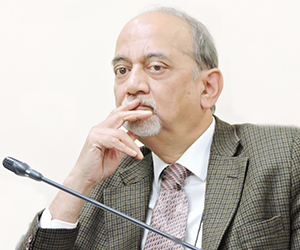

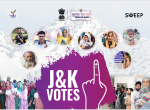
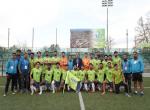
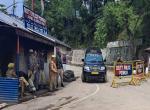
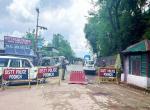

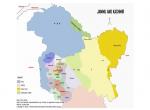

Post new comment